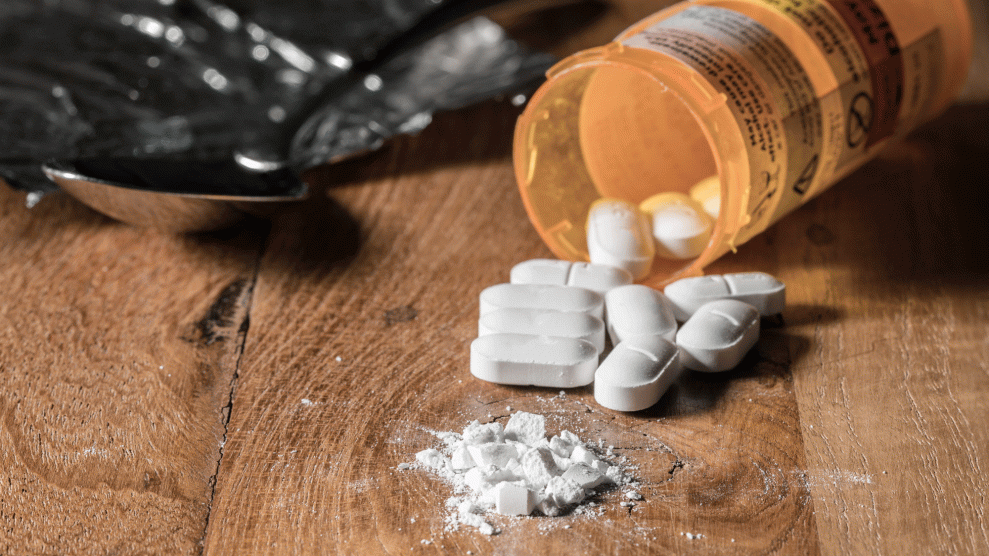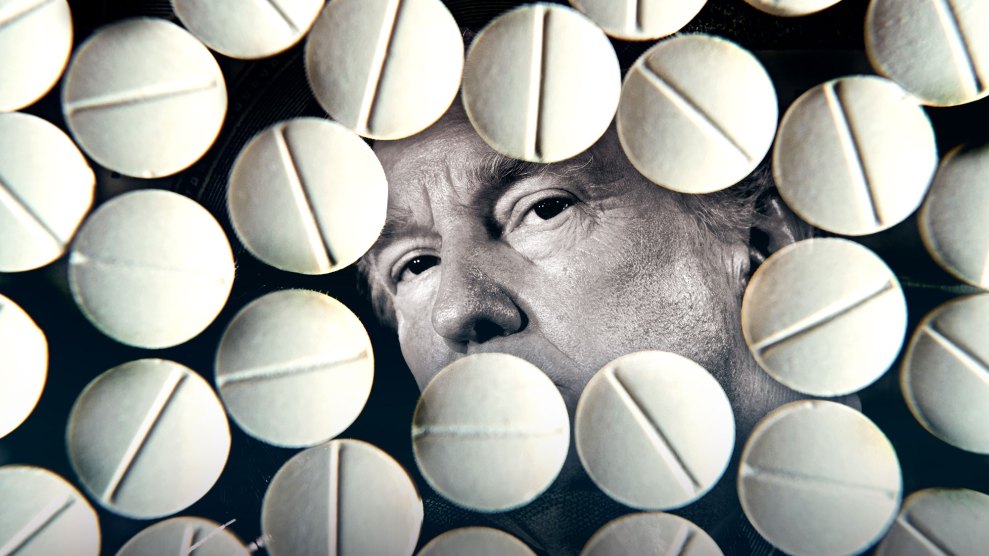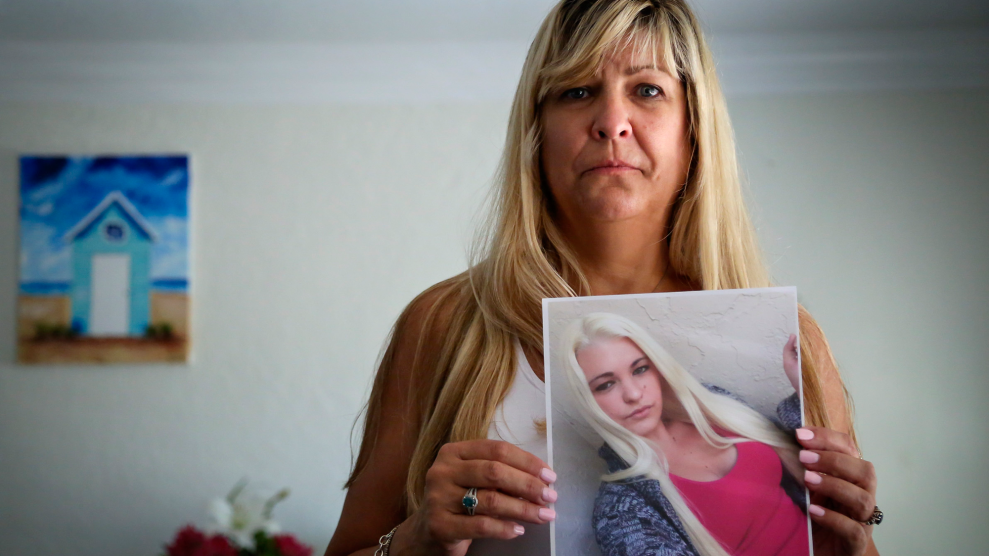
BackyardProduction/Getty
While President Donald Trump promised to “spend the money” to end the scourge of opiate addiction on the campaign trail, he’s been quiet on the issue since he began his tenure—even as health care has taken center stage.
But later this week, the president plans to announce a new drug commission to combat the opioid epidemic chaired by New Jersey Gov. Chris Christie, according to the Washington Post‘s Ashley Parker and Philip Rucker. The team will be part of a new office, led by Trump’s son-in-law, Jared Kushner, that will have “sweeping authority to overhaul the federal bureaucracy and fulfill key campaign promises.” Christie has been “working informally on the issue for several weeks with Kushner, despite reported tension between the two,” reports the Post. (Christie was the federal prosecutor who helped put Kushner’s father, the real estate mogul Charles Kushner, behind bars.)
According to sources familiar with the draft executive order calling for the creation of the commission, the primary goal of the President’s Commission on Combating Opioid Abuse, Addiction, and Overdose would be to compile a report on the state of the opioid epidemic—along with recommendations for responding to it—by October. Members of the commission will include Attorney General Jeff Sessions, Secretary of Health and Human Services Tom Price, Secretary of Veterans Affairs David Shulkin, and Secretary of Defense James Mattis. The members would not be paid, but funding for the commission costs would be paid for by the Office of National Drug Control Policy.
The commission would be specifically tasked with identifying “federal funding mechanisms” for addiction prevention and treatment, assessing the availability of addiction treatment services, identifying best practices for addiction prevention, recommending regulatory changes in federal criminal law, reviewing barriers to response by the health care system, and evaluating existing federal programs to combat addiction and overdose.
The White House and Christie’s offices did not immediately respond to a request for comment.
Skeptics maintain that the executive order is simply lip service: “If you’re serious about a commission, show me your budget and your plan to put it into action,” said one source familiar with the draft. On the campaign trail, the president vowed to spend money on addiction treatment. Yet the administration’s actions so far don’t match the promises: Repealing the Affordable Care Act would have left millions without mental health and substance abuse services. The president’s proposed budget would cut funding for the Department of Health and Human Services by 18 percent.
Furthermore, critics say, there’s the issue of redundancy: The surgeon general’s office under President Barack Obama published a very similar report in November 2016. Meanwhile, Trump has yet to appoint a director to the Office of Drug Control Policy, which is charged with evaluating and overseeing anti-drug efforts.
While the scope and impact of the commission remains uncertain, many progressive drug policy advocates are happy to see Christie put in a leadership role. For years, Christie has championed the need for treatment rather than punishment for drug users—perhaps most famously in late 2015 when he told the story of a close friend who became addicted to painkillers and later overdosed. When his mother died of lung cancer after decades of smoking, “no one came to her and said, ‘Don’t treat her because she got what she deserved.'” he said. “But somehow if it’s heroin or cocaine or alcohol, we say, ‘They decided, they’re getting what they deserved.'” Christie signed legislation to make the overdose reversal drug naloxone available at pharmacies, to prohibit drug courts from barring addiction medication, and to prevent those who call 911 in an overdose from being arrested. Under his tenure, the state’s prison population has plummeted, though access to addiction treatment for the uninsured population remains a challenge.
Sessions, meanwhile, has made a name for himself as a drug warrior promoting traditional tough-on-crime tactics. He continues to support mandatory minimum sentences. During a hearing of the Senate Caucus on International Narcotics Control last April, he said, “Good people don’t smoke marijuana.” Just how involved Sessions, Price, Shulkin, and Mattis will be is up in the air—the chair of federal commissions typically takes the lead, while other committee members delegate to lower-level representatives.
Of all the committee members, progressive policy experts have highest hopes for Christie. “He’s one of the best people in his party on the issue,” says Keith Humphreys, a Stanford University psychiatry professor who advised the Obama administration on drug policy. “I wouldn’t vouch for this effort, but I’d vouch for him—if he was given any serious platform, he could do some good things.”













